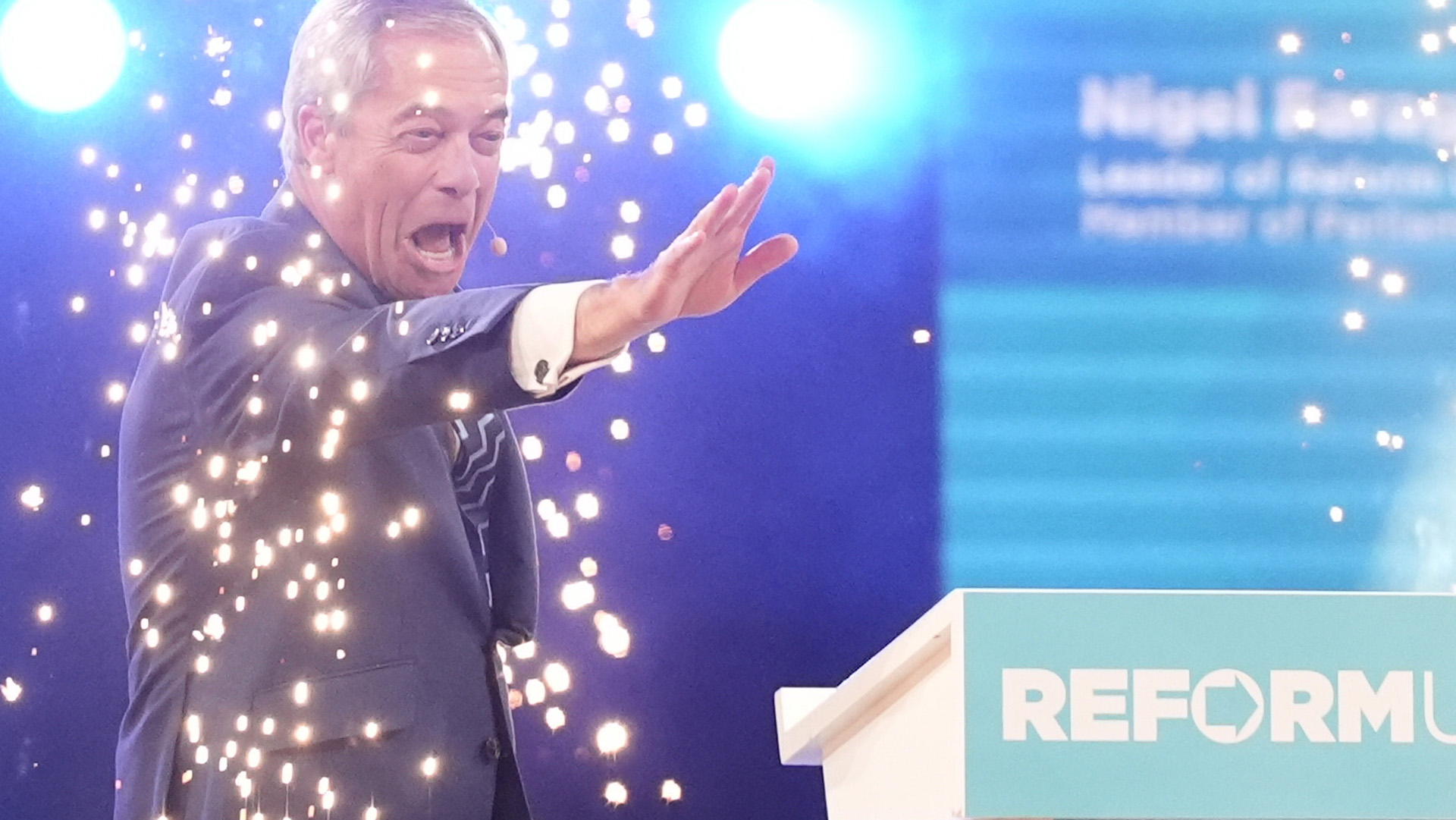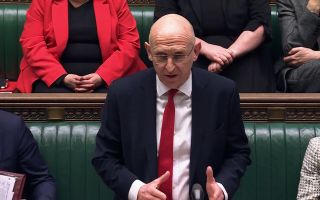
Reform UK: Defence priorities for the first 100 days and the future if they win power

The Reform UK conference is underway at the National Exhibition Centre in Birmingham, with their four MPs, mayors, councillors and more than 10,000 people attending the event.
The party, launched in 2021, led by Nigel Farage, the Clacton MP, currently leads the polls with an 11-point lead over Sir Keir Starmer's Labour Party, buoyed by the recent defection of former Conservative minister Nadine Dorries to its ranks.
Considering the tumultuous world, with the Ukraine war continuing to be unresolved, despite the latest talks in Paris, a rising China and the UK and Europe's increasing defence spending, whoever takes over as Defence Secretary will have a lot in their in-tray after the general election in 2029.
Reform's policies are shown in their manifesto, named "Our Contract With You", which was released in June 2024 before the general election in the following month.
The policies are divided between their plans for the first three months, and then what the party want to do further into the future.
BFBS Forces News has analysed Reform UK's defence policies to see what the party would do if it were to win power and the keys to 10 Downing Street.

Reform's defence plans for the first 100 days
During the initial period of government, the party wants to raise defence spending to 2.5% of national GDP by the third year in charge of the UK, a figure that the UK government wants to achieve by 2027, and then boost defence spending to 3% within six years.
The manifesto argued that these measures will "increase the size and capacity of our armed forces and ensure our lead in Nato".
The party's MPs would like to initiate an urgent pay review, as they stated it is "unacceptable" that an Amazon worker earns more than a soldier.
Besides these policies, Mr Farage's party want to get a new Armed Forces Justice Bill through Parliament.
The bill will allegedly shield service personnel on deployment at home and abroad from the effects of civil law and human rights lawyers.
The manifesto does not describe how this will be done, nor what it will mean for the UK and the military's judicial system.
Another policy that the four-year-old party want to enact is a new department for veterans with a minister, mimicking the US Department of Veterans Affairs.
The veterans minister position was first conceived by former Prime Minister Boris Johnson in 2019.
Oliver Dowden and Johnny Mercer shared the responsibilities of running the Office for Veterans' Affairs, which was based in the Cabinet Office.
The manifesto does not specify whether the minister will sit in cabinet or what powers the new ministerial department will have compared to those of the current veterans' minister, Al Carns MP.
"A properly funded and resourced whole department is essential to guarantee no veteran goes without and that our former servicemen and women play a leading role in our society and economy," the manifesto said about the brand-new department.

In the future
Given that more UK regulars left the Armed Forces than joined over a 12-month period, according to the latest Ministry of Defence statistics, Reform UK have pledged to get 30,000 people to enlist in the British Army full-time.
The policy document does not suggest provisional recruitment targets for the Royal Navy or Royal Air Force.
The party with more than 200,000 members has vowed to add incentives and tax breaks to the economy, so that the UK can become more self-sufficient in terms of defence manufacturing and technology.

Other longer-term ambitions for the party in the defence realm include reforming defence procurement through a Joint Acquisition Corp.
They also pledged to give a free education to military personnel during and after their service.
However, the manifesto did not divulge whether this would expand the courses already offered and how they would keep veterans in the military education system.
These pledges would cost an estimated £14bn per annum, but whether they are ever rolled out, we'll have to wait and see.
Ukraine
With the prospect of a potential reassurance force in the country, including UK personnel being deployed, if a ceasefire is agreed between Russian president Putin and Ukrainian president Zelensky, Reform UK's Ukraine policy will come into the spotlight.
Mr Farage has previously mentioned that the growth of the European Union and Nato allowed Russia a "reason" to launch the full-scale invasion in 2022.
"Putin has gone much further than I thought he would," he said in a post on X on the day Moscow's troops began their invasion.
"A consequence of EU and Nato expansion, which came to a head in 2014. It made no sense to poke the Russian bear with a stick.
"These are dark days for Europe."
Beyond the Reform UK leader's beliefs on the cause of the war, he has disagreed with the idea of deploying British troops to Ukraine.
"We should not be deploying British troops to Ukraine," the 61-year-old said two years ago.
More recently, though, the ex-Brexit Party leader has supported a peace deal and security guarantees for the country.
He said that a peace agreement is "essential" and that Ukraine must have the "right security guarantees" in March this year.








